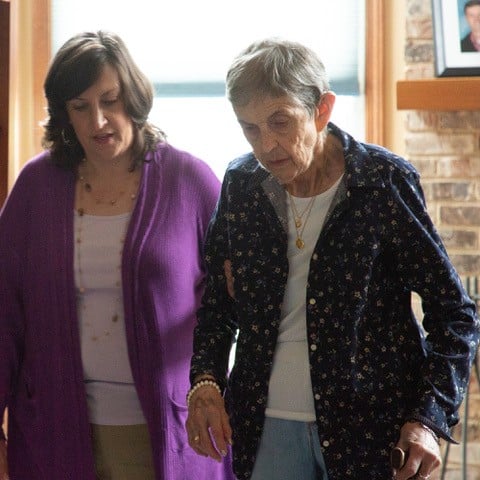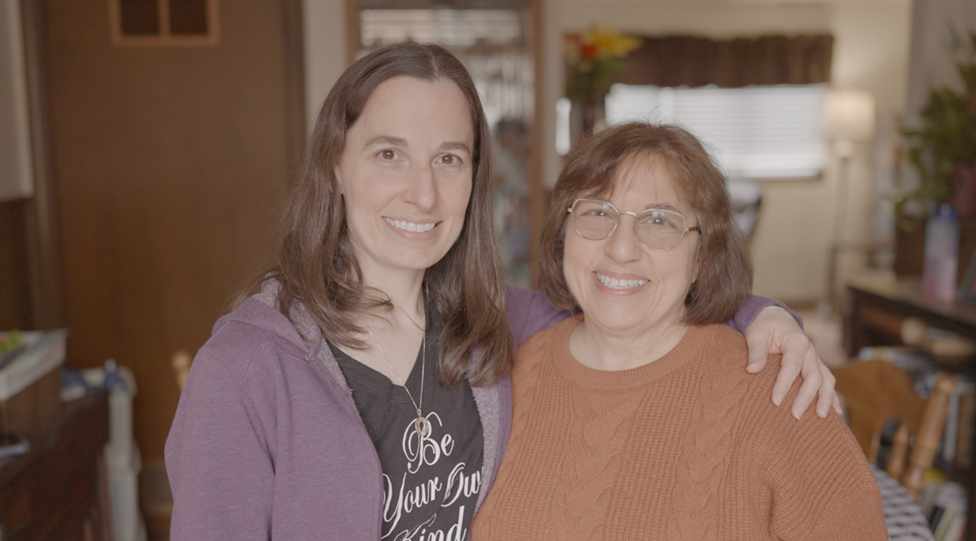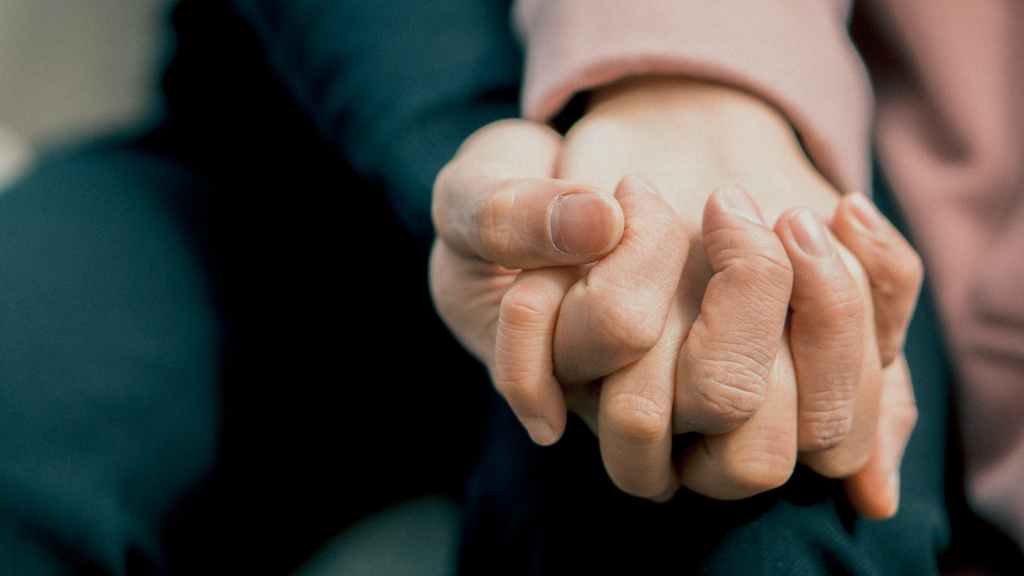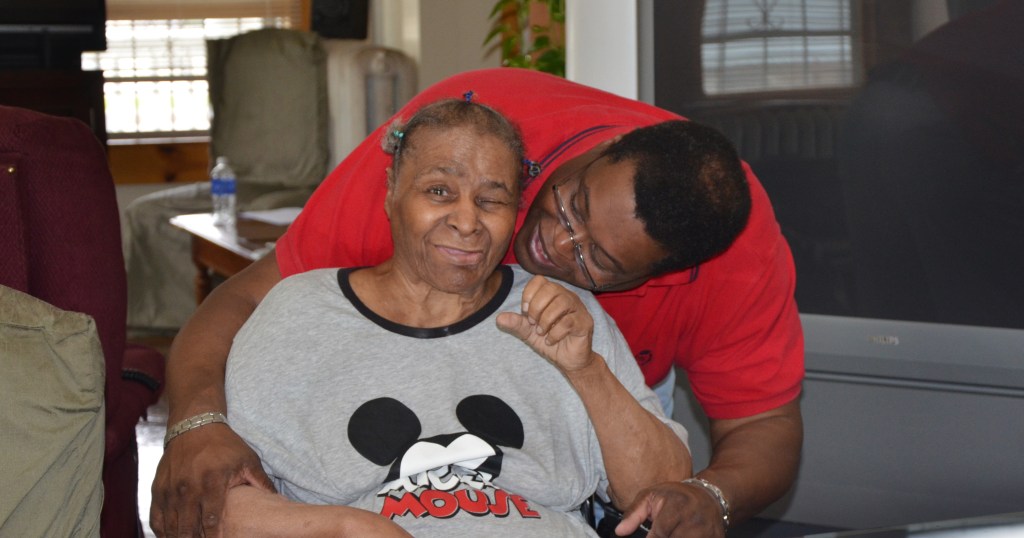
I cared for my parents, but I didn’t lose myself

Denise and her mother
When I tell people that I launched CareGiving.com in 1996, I often hear, “You must have started your work because of a personal experience.”
In reality, my personal caregiving story didn’t begin until March 2004 when my parents returned home early from a vacation to San Diego after my father saw blood in his urine. He was desperate to get home and get to his doctor.
A few weeks later, we received the diagnosis – bladder cancer. My parents and I sat in the doctor’s office; I took notes while my parents felt the news. Afterward, we went out for lunch, our silent way of agreeing that we will keep living.
We did and do. Living now means that we do what we can for as long as we can. Eleven years after my dad’s diagnosis, the cancer spread to a kidney and ureter; he underwent an eight-hour surgery at 83 years of age to remove his bladder, kidney, ureter and prostate.
Of course, more health challenges have followed. My dad had a blockage removed from his carotid artery, a false-alarm heart attack, sepsis and surgery to remove skin cancer covering the top of his head. Four months after my dad’s surgery, my mom faced her own health crisis – a 5-week hospitalization because of three internal bleeds, one of which could only be stopped by removing one third of her stomach. They both have fallen; one of my father’s two midnight spills required an ER visit.
Still caring, still working
In order for me to keep living during caregiving, I have to keep working. I support myself and if I don’t keep my paid speaking gigs, I don’t get paid.
During my mom’s hospitalization, I kept an engagement in Washington, D.C. because it seemed her condition had stabilized. During my meeting, I received news that my mom’s condition had worsened, and she needed emergency surgery to stop her internal bleed. I returned home later that evening after sitting in the Ronald Reagan Washington National Airport receiving and reading text messages from my siblings.
During her hospitalization I also traveled to central Indiana and then Iowa for speaking engagements. My siblings and my father encouraged me to keep my work commitments even as we worried my mom would die. She ultimately recovered although never regained the independence she enjoyed prior to her hospitalization.
When I think of those times – working while worrying about my mom – I’m reminded of the quote attributed to 19th-century author Ian Maclaren:“Be kind, for everyone you meet is fighting a hard battle.” I am aware that silent courage is all around me as family caregivers go about their lives while carrying the weight of their responsibilities.
The moments of vulnerability are the times that stand out for me. Before my dad’s surgery, I requested a chaplain pray with the three of us. We prayed, aware of how much we had to leave to faith. When my mom was critically ill, I sat with my dad as he sobbed.
Calculating the losses
Currently, my parents experience slow, steady declines. We are not in the midst of a crisis or an emergency so focus on spending quality time together. On Labor Day, I drove them to their old neighborhoods in Chicago. We drove by their childhood houses and the first house they bought as a married couple. “This was a great day,” my dad declared during our lunch afterward.
I ask my parents questions about their wishes and then listen with the intent to follow them through. Keeping my dad’s only kidney in good shape can be a challenge. The doctors will sometimes mention the possibility of dialysis. I asked my dad about his wishes; he has decided he wants to decline dialysis if this becomes his only option. We’ve had the conversations about funeral wishes. Most recently, I asked how they want me to handle a visit from my oldest sister during their last days. They are thinking about this.
How my experience has shaped me
My years in working with family caregivers have made me a student of the experience. As a student, I’m grateful for what I’ve learned from other family caregivers which helps me during my caregiving experience. I know to limit the self-pity because an endless pity party will put me farther behind in my life than a caregiving experience could. I focus on my priorities, communicating them and then respecting them so others will too. I blog about my difficult days because the writing, for me, is an amazing release.
I keep my siblings (except for my oldest) in the loop so they know of my parents’ wishes, especially my dad’s decision about dialysis. I ask for their help which I receive with gratitude and appreciation. I probably worry too much, which my mom reminds me of regularly, but the worries often help me focus my energy. Every worry needs a plan is a life philosophy I try to follow.
I am not perfect as I help and care for my parents. I understand my goal is not to be perfect but to be human. In my humanness, I connect with my parents on deep, meaningful levels. When my parents are gone, I will treasure those meaningful moments and give thanks that my imperfections created them.
Denise M. Brown launched CareGiving.com in 1996. CareGiving.com was the first website to add online caregiving support groups, daily caregiving chats and blogs written by family caregivers. Through its blogs posts, podcasts and video chats, CareGiving.com holds one of the largest online libraries of caregiving stories.
Since 2016, Denise has organized and hosted the National Caregiving Conference which takes place annually. The unique event puts family caregivers and former family caregivers on stage as they are the experts in a caregiving situation.
Denise developed and leads training programs which help individuals transform their personal caregiving experiences. More than 200 individuals worldwide have completed the Certified Caregiving Consultant, Educator, Facilitator and Specialist training programs.


